Wahabism Is Not My Culture
May 12, 2013 | Nadine El Sayed 18We always remember the good old days when women used to be able to wear whatever they wanted and not be bothered or harassed on the streets.
But hang on a minute — that was not, actually, too long ago.
No, that wasn’t some 50-odd years back when we used to be a different society. I grew up in the 1980s and 1990s, and until the late 1990s — when a wave of conservative wahabi attire suddenly grew popular — I saw women donning the latest fashions and comfortably walking on the streets.
The wave of long beards, niqabis and extremist preaching against motabarejat (women who dress up or wear make up) was unheard of even 15 years back. No, growing up, I had never seen a religious preacher shouting at the audience on television and telling them they will all go to hell because this is a corrupt, obscene society that needs cleansing.
I grew up accustomed to seeing the late Sheikh Mohamed Metwally El Shaarawy and the progressive Islamic thinker Mostafa Mahmoud. The preachers who had been popular back then had nothing to do with the extremist Salafists on the airwaves now. They were well read, highly educated researchers in religion and based all their opinions on thorough readings and research.
Looking back, it is plain to see that the overtly conservative form of hijab, the niqab and Salafism hit Egypt after the economic infitah (open door policy) the middle and lower classes travelled to the Gulf and Saudi Arabia to work there. But although they had travelled in the 1970s, the wave of migration back to Egypt came around the time of the Gulf War in 1991.
So it was not until the late 1990s that we started seeing this construct of anti-feminism, extremist religion and an overall wahabi culture that had nothing to do with the moderate Islam our esteemed Al-Azhar had been preaching.
And it was not until last year that the wahabi and salafi movements, represented by the Muslim Brotherhood and the Nour Party respectively, began being institutionalized rather than marginalized, emerging from underground to mainstream media. Extremist Islam has infiltrated our political scene and made its way into the mainstream public sphere after having been a sidelined force. This is spreading a wahabi and salafi culture that aims at making moderate Muslims and liberals feel as a minority in their own community.
But I insist: This is not our culture, and I hope we don’t let it be.
Proud heritage
Egyptian women come from a strong line of feminists, pioneering ladies who fought their way into the public sphere, into the workforce and even onto the political scene. Our history makes feminists around the world proud — we even had a queen ruling the strongest civilization, for God’s sake.
When Hoda Shaarawy threw off the face veil upon her return from Rome in 1923, she triggered a wave of controversy and celebrations. In many ways, Shaarawy and her comrades, Nabaweya Musa and Ceza Nabarawy, liberated last century’s Egyptian female population through their pioneering fight against oppression of women.
Editor’s note: Read more about our pioneering feminists here.
Mind you, Shaarawy threw off a face veil that she only had to wear in public, on top of western outfits. It was not the niqab we know today, it was merely a tradition that had nothing to do with religious beliefs.
That was 90 years back, and from the 1930s until the late 1990s, or about 60 years, Egyptian women walked the streets wearing whatever they saw fashionable and became a vibrant part of all aspects of our society. They were respected as the other half of this nation and esteemed as mothers of generations and working women who added to the society. Doors were being opened for them and their bags held for them as any true gentleman would. They certainly did not walk behind their husbands face held down to the ground and back hunched over carrying two babies and holding another in their hands because they feel awkward walking the streets, inferior to the man they are walking with and know it is their duty to pump out babies for the Islamic Ummah.
Now, this is not about outfits or mini-skirts; it is about being so obsessed over isolating and covering women that we want not an inch of them showing and would much rather have them stay home and confine to domestic chores. It is about placing women in that mold some masochistic patriarchal minds want to enforce on us to feel more manly and grand.
This is about fighting for what Shaarawy had given us almost a 100 years ago.
It isn’t about niqab, it isn’t about conservative outfits, it is about a whole culture infiltrating our society and objectifying women on all fronts; starting with the notorious mut’a marriage that allows men to marry women for a month to satisfy a sexual urge, and ending with various fatwas claiming a woman is best serving her home than mixing with men at the work place.
Many sheikhs are calling for women to become mindless creatures whose sole duty is to sexually please her husband whenever he asked for his ‘marital rights’ and our Muslim Brotherhood former member of the Parliament, Azza El Garf, is calling to take the right of khul’ away from our women.
How was this ever our culture? Even when women wore the yashmak they enjoyed more freedoms. This wasn’t, and is not, our culture.
Egypt had always been, throughout its very long history, a country with moderate religious orientations. We believe in God and have been quite religious throughout history, but we have also always been quite moderately religious. Extremism is something new to our culture, it is an invasion of a wahabi and other extremists lines of thought that infiltrated us and made the younger generations think this is Egypt. It is a culture that we need to educate ourselves very well about to be able to differentiate between the moderately religious culture of Egyptians and the imported wahabi, oppressive culture that aims to put women back in their homes.
I do not feel like the odd one out in my society. I comfortably walk the streets of my neighborhood with my head held high. I do not feel the need to cover up and I do not feel the need to rush to my car — I am the Egyptian woman, I represent our values, culture and traditions and I will not yield to a culture that is not my own. I come from a proud heritage and I intend to keep it.
I intend to educate my daughters on our proud heritage and on the women who fought for our right to participate in the society — a right some women are sadly willingly brainwashed into giving up. I intend to tell them to walk proud and never feel the need to hide from society so that they extend the line of strong Egyptian women the history has witnessed.
If we give up and start feeling like the odd ones out, then we are handing over our minds, culture and traditions to ones that are foreign from our own.
Now why would a culture that has been around for hundreds of years suddenly become marginalized for a culture that only started emerging 20-something years ago?
-
Well said. This is not Egypt culture, or Palestine where I come from. I believe in educating women to the max.. giving them all options as long as the they are for their good of course. I honestly believe that societies with closed minded men who only want women to sit at home, have not reached anywhere through history. Only when you see the world with open eyes and clear minds, then you own your life and use your brain as God asked us to.
-
very poorly researched article stating all the common stereotypes.
Cultures change, there is no fixed Egyptian culture. You just need to learn a bit more tolerance and acceptance, maybe that would be a nice thing to teach your daughters.
-
Dear Salma,
We appreciate all of our readers’ comments, be it positive or negative.Just to clarify: Each is free to believe and act how they would like, be it wearing a bikini or wearing a niqab, my problem is trying to enforce a culture on me as it is often the case with the Wahabi movement in the Arab world.
And I do agree about the necessity to teach tolerance and acceptance from both sides, the liberals and the extremists, but tolerance doesn’t often go hand in hand with extremism am afraid. I would be most tolerant of Wahabis had they not tried to enforce their views on the Muslim, and non-muslim for that matter, societies.However, I would love to hear more from you, and I am sure our readers would as well. So if you would like, email me on nelsayed@19TwentyThree.com and we can speak about a contributing article from you to elaborate more on your point and share it with our readers.
We care to represent different points of views on 19TwentyThree and would like to hear yours.
Looking forward,
Nadine -
أنظر إلى وضع المرأة في أي مجتمع، تعرف مدى تقدم الدولة
-
I agree with most of what is said,yet i feel i need to state one thing. We,girls and women, should cover up not for anyone’s sake or to follow any new or old heritage, we should cover up as we were ordered from God in Quran, which is the moderate yet proper hijab. With all due respect to all the famous feminists mentioned here, but my commander is God and my teacher is el Rasool. Mixing the two ideas of women properly covered up with the stereotype of being crushed or walking with their heads down is the important case we need to work on,we need to show the others,extremists or not, that women could be properly covered and at the same time share in every field in society. However, it is important for me to make sure that the way any woman dresses is her choice and hers only, it’s a close and private relationship with God,just like praying or charity or fasting. We need to stop judging women by the way they dress, as simple as that. The extremists judge the uncovered woman as sinful and damned, and the liberals do judge the covered ones,wether hijab or neqab, as retarded, brainless,weak,follower,brainwashed,and many times terrorists. Most liberals who fight for freedom of thoughts and actions r actually very judgmental on people who r different.
-
Dear Shahira,
Thank you for this post, I totally agree with you that just as much as there are stereotypes from extremists, there are stereotypes from liberals and they both should be unacceptable.Although in this particular post I wasn’t speaking of higab, but rather niqab, my views on higab are a little different than yours, but I do totally agree with you that we should be fighting for women’s rights to properly participate in the society and choose her own path and of course attire without being judged or influenced by extremists or liberals and without facing stereotypes from either. The bigger picture here is the attitude and culture of society towards woman and not whether she chooses to cover her hair or not.
Thanks for commenting and stressing the message of tolerance 🙂
Nadine -
True 🙂
-
What God wants is not for you women to cover up. He wants you to be equal human beings to men. You are not عوره, the Quran didn’t say that. It’s those ignorant and patriarchal sheiks who keep on repeating that, that most of you now sadly think that this is what God wants. The Quran has many different interpretations. The “covering up women” mentality is a Wahaby understand of Quran, and defiantly not the only interpretation, that is.
-
It’s refreshing to see men voicing out their opinions on religion and gender equality. Thank you, Ahmed, for this.
-
I agree that the wahhabi/salafi invasion is starting to get out of hand, and that’s just part of a wider problem. For instance, I noticed some girls who wear higab because its become ‘fashionable’, in one particular case a whole group of girls I know all got veiled within a few months, like it’s fashionable to appear religious. I find it almost impossible to relate when my grandmother tells me stories of the good old days when women would wear the latest fashion from Europe without any modifications for extra modesty like girls do now.
If we give in to this new wave then I fear Egypt as we know it will be gone. Even a salafi relative of mine moved to Saudi Arabia and, far from living the dream, he promptly returned, saying that he couldn’t take it there, the society is too closed, mafeesh khefet dam like here.
-
You totally expressed what I had in mind threw all the past years, but I don’t have the courage to say it . Yes it started on the late 80’s and now it’s an invasion I feel I don’t belong to this society any more. you know what I miss?
I miss seeing normal girls and ladies wearing normal clothes with their hair loose or cut.
Don’t give up lots of girls and women are thinking the same but they have chosen the easy way, to shut up and do as they told to do. -
This is an Amazing article. I am very impressed Nadine by your analytical thinking. Apart from the Hijab issue and whether it is a necessity for Muslim women’s to wear or not, I totally agree with you that it is imported from the gulf countries and it became a tradition rather than a religious issue. It is ver strange that nowadays we see young girls particularly in public schools who are veiled??? Also it became notable that in certain social classes Hijab became compulsory rather than optional. Girls wear Hijab not because they are convinced of it but only because they will be rejected from their neighbors and peers.
I am very fond of your simple yet professional language.
At the beginning I thought the article is a bit long to read via the iPhone but I couldn’t log out without completing the entire article , the reader’s comments and the very professional and polite replies. -
Great article< widely agreed amazing
-
Thank you for voicing the opinions of my generation of the university students in the 60ties. At that time we boys and girls didn’t even think about covered of uncovered female. We were equal civilized young people having our believes , that might be different from each other yet
we didn’t need special dress code to show it. We didn’t think that our uncovered moms were not good believers, and those of us who came from villages didn’t think that there traditionally covered mothers were less than ours. The Egyptian woman had her respectful position in our society. We were taught that by our parents and our teachers,( and some of them were El Azhar graduates).Most of our professors were uncovered ladies highly educated , proud of themselves and were equal and even better than their male colleagues. There was no sense of inferiority between both genders.
That all changed gradually in the following 30 years when the imported Wahaby teaching prevailed using religion to press women and to convince us that this is the will of Allah.
Living in The Netherlands for more than 30 years, I can assure you that even in northern Europe there are women who chose to use traditional cloth or not to cut their hairs yet they feel equal to others not less or better. It is their own choice and every one respects that.
Reading your article and the comments I began to sense hope again in our young people. Thank you again -
Well done Nadine!!! Oppressive Wahabism, Hanbalism and Salafism is a danger to the development of any country. Covering and keeping Women at home, rendering them useless and uneducated will deconstruct the layers of society. The relationships between Men and Women will become mechanical, frigid and unstable and children will find themselves with no role-models. Instead, they will become indoctrinated by the theory taught at Wahabi lead schools which don’t focus on peace, wisdom or tolerance, but rather, preach fear and terror of God if one were to stray from ( their version of ) Gods will. These kids will, in turn, become adults who lack common sense and self-reflection and so we will have a vicious circle…
As for covering: don’t even get me started on what will happen when Men see the silhouette of a Woman through her Abaya as she crosses the street ( I am half Saudi, trust me I know )… The more you cover a Woman up, the more she becomes objectified ( works exactly like extreme nudity ) and more sexual. The more you hide her, the more she becomes a ( morbid ) fantasy and the less men and women mingle, well, the more same-sex mingling will happen and then….you do the math!!
Remember: Extremism has NOTHING to do with Religion, but EVERYTHING to do with Power!
-
Thank you for your comment Shaza, it’s interesting to read your insight given your multi-cultural background 🙂
-
Thank you everyone for your encouraging words, I appreciate all the feedback and the encouragements and it really does motivate the 19TwentyThree team and I tremendously, I am so glad you enjoyed this article and happy that I am voicing out a concern that’s apparently shared by many others:)
Keep your feedback coming, please, it really does give us tremendous motivation!
Nadine -
Despite the fact that islam is d religion of rules,laws and principles,is not that saccossant and fastidious but rather flexible and moderate which could be infered frm hadith of the prophet. My own takes is this, let’s go back to the jurspudence of the four imams(abu hanifah, malik,shaafih and hanbal) before passing any fatwa Ithink this will put an end to the extrimism of wahabiyay.

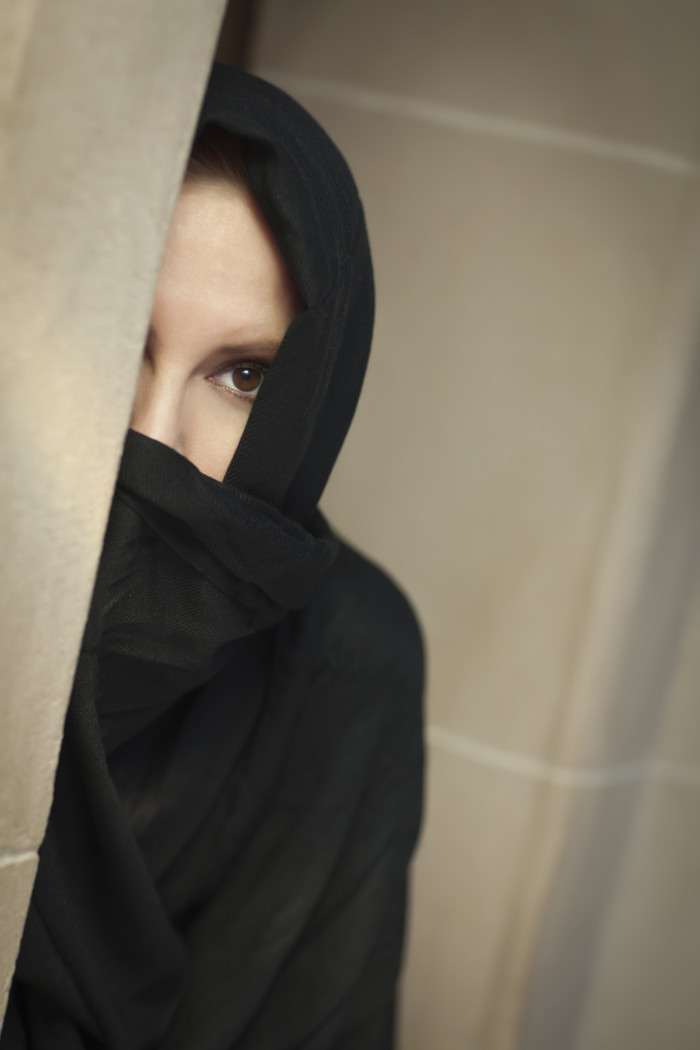


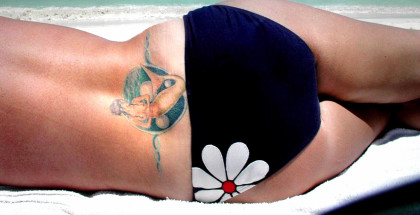
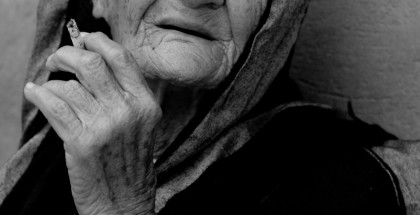
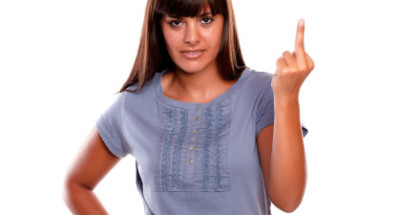
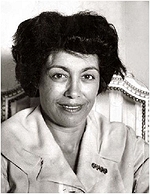



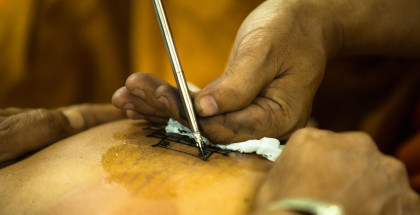
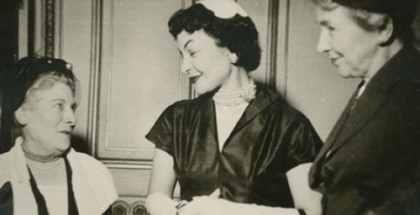
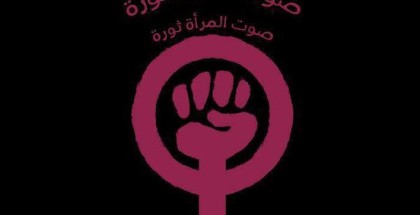













Comments